Putin gains more Africa influence as Wagner Group leads coup
Moscow is capitalising on the chaos of Burkina Faso’s second coup this year with the notorious Wagner Group stirring anti-French sentiment to fuel the latest upheaval.
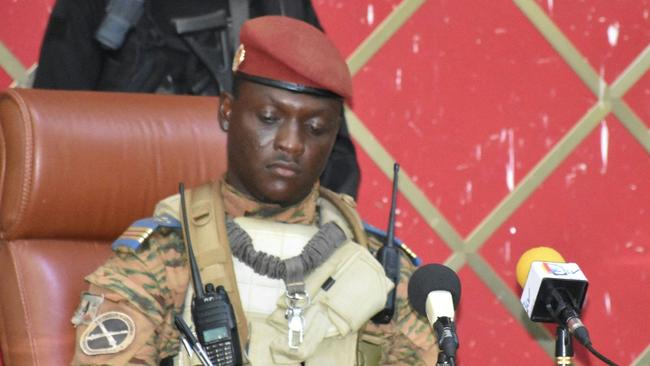
The Kremlin has exploited the latest coup in west Africa to entrench its influence on the continent at the expense of the West. Troops involved in the ousting of Paul-Henri Damiba, who seized power in Burkina Faso in January, waved Russian flags on Sunday to signal their new allegiance.
The coup’s leaders pledged they would “go to other partners ready to help in the fight against terrorism” – seen as a reference to the Wagner Group, President Vladimir Putin’s mercenary army that is increasingly being used to prop up Africa’s illegitimate rulers.
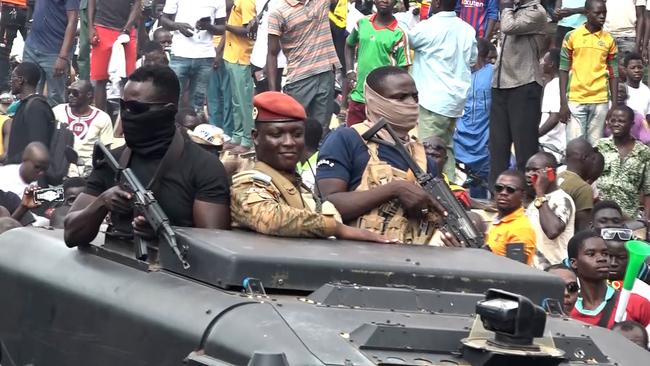
Russia’s role in the coup was confirmed by Sergei Markov, a pro-Kremlin commentator, who said “our people helped the new leader” and Yevgeny Prigozhin, the businessman who set up the Wagner Group, who said he “fully supported” the coup in the former French colony.
“Apparently another African country will move from co-operation with France to an alliance with Russia,” Mr Markov wrote on the Telegram messaging site. The gold-rich state’s political fragility, and the presence of Wagner mercenaries in neighbouring Mali, had put Burkina Faso firmly in Russia’s sights, US intelligence officials warned this year.
Captain Ibrahim Traore, the new leader, appealed for calm on Sunday after three days of violent protests by his supporters. Rocks were thrown and fires lit outside the French embassy in Ouagadougou, the capital, as rumours swirled that Mr Damiba would try a countercoup with the help of Paris.
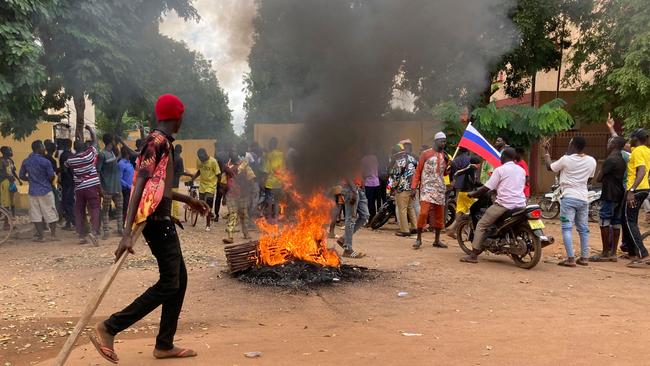
Mr Traore said the coup was necessary because Mr Damiba had failed to protect citizens from an Islamist insurgency that has forced two million people from their homes and left thousands dead. Mr Damiba had given the same justification for his own coup against Roch Kabore, the former president, but he failed to repel the jihadists, whose attacks have intensified. Mr Damiba reportedly resigned on Sunday. His whereabouts is unknown.
Burkina Faso’s switch of support to Moscow underscores how Islamist extremism in the Sahel, the arid band south of the Sahara, is fuelling instability and weakening pro-western ties in the region. Since 2020 the insurgency has contributed to coups in Chad, Guinea, two in Mali and now the second in Burkina Faso.
Russia has been quick to exploit chaos in the region thanks, in part, to a stream of bogus social media posts generated by the Wagner Group that have whipped up anti-French sentiment.
France has a military presence in Burkina Faso, with a contingent of special forces based in Kamboinsin, 32km from Ouagadougou. It recently pulled its counter-insurgency operation out of neighbouring Mali, the epicentre of terror, after the country’s military leaders struck a security deal with Wagner mercenaries. As analysts predicted, Burkina Faso has followed Mali.
The African Union and Ecowas, the west African regional bloc, urged the military to “avoid escalation and in all circumstances to protect civilians”. The US state department said it “is deeply concerned by events in Burkina Faso” and called for a return to “constitutional order”.
After years of neglecting its relationship with Africa and alarmed at the growing influence of Moscow and Beijing, Washington has belatedly tried to revive links and has invited the continent’s leaders to a summit in Washington in December.
The Times

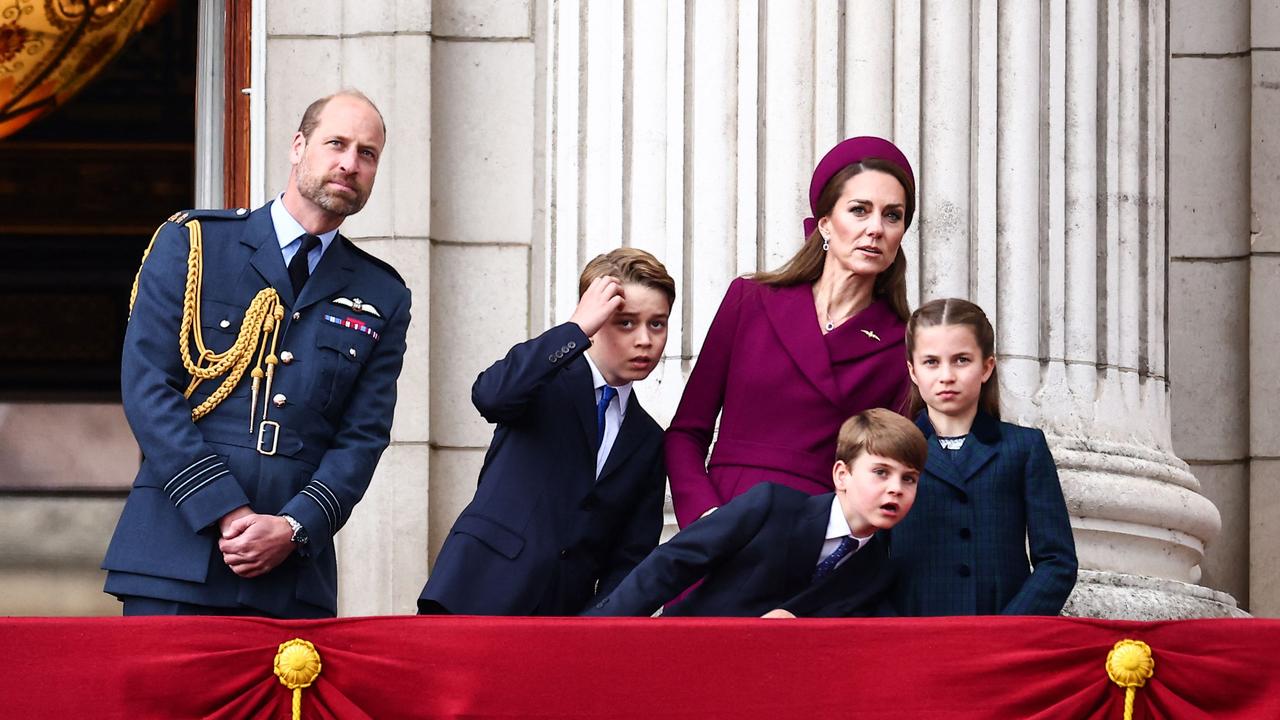
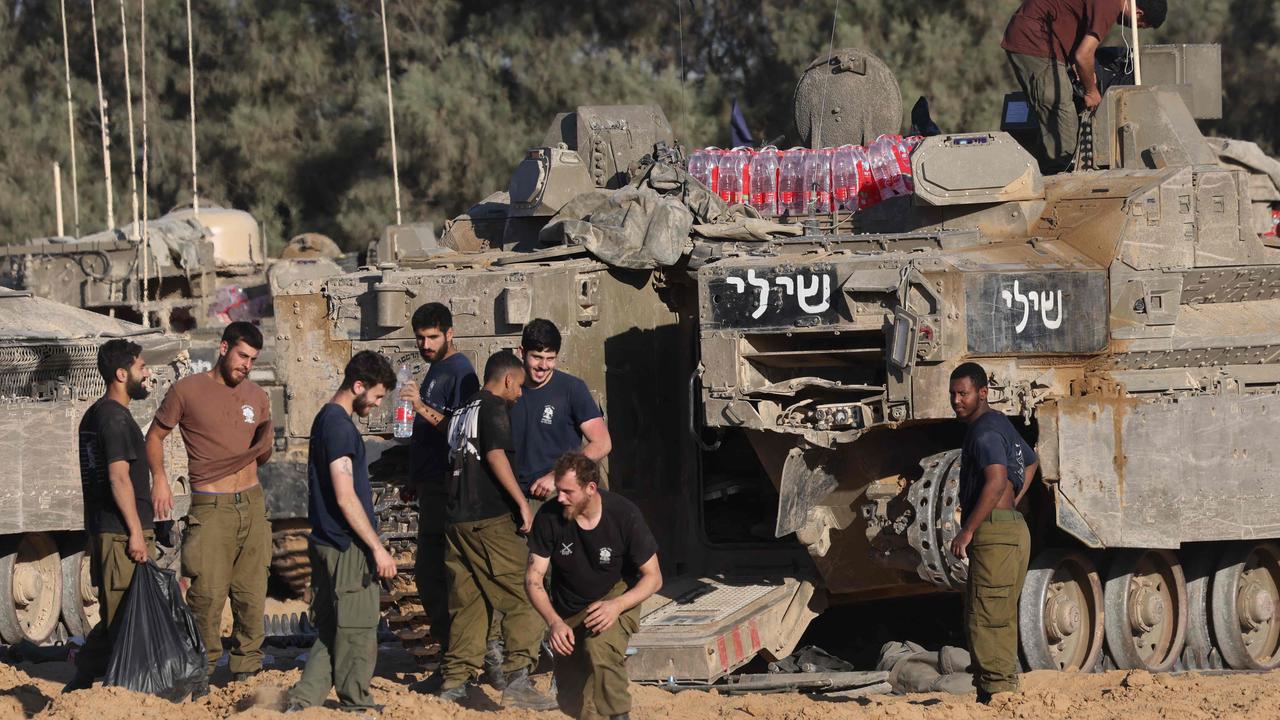
To join the conversation, please log in. Don't have an account? Register
Join the conversation, you are commenting as Logout